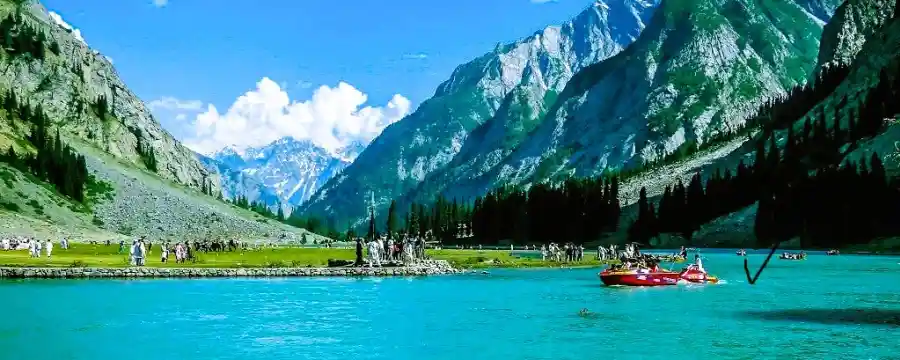By Zainab Iqtedar
Pakistan has a lot of different types of land, like mountains and coasts, which are home to many different kinds of plants and animals. But some of these special plants and animals are in danger because their homes are being destroyed, and people are using too much of them. There are a lot of people in Pakistan, and they are using up the land and water very quickly. This is causing problems like cutting down trees, animals eating too much grass, and the soil washing away. These things are making it hard for plants and animals to survive.
To help, scientists are studying the genes of both farm animals and wild animals so they can make them better. Some special plants in Pakistan are used for medicine, and these are important for keeping people healthy. Biodiversity, which means having lots of different plants and animals, is really important for Pakistan. It helps make sure there’s clean water, fresh air, and enough food. But sometimes people don’t realize how important these things are. When plants and animals disappear, it can affect the things we need.
Importance of Biodiversity
Biodiversity provides essential services of significant value, benefiting Pakistan’s society. These services include clean water, fresh air, pollination, soil protection, pest control for crops, and the provision of food, fuel, fibers, and medicines. Despite their significance, these services are often undervalued in economic and social terms. The decline in biodiversity, including local species extinction, directly affects these vital ecosystem services.
Threats To Biodiversity
Despite its abundant biodiversity, Pakistan is confronted with significant threats. Various factors, including over-grazing, excessive harvesting, water-logging, salinization, deforestation, land conversion, soil erosion, desertification, invasive alien species, and chemical pollution, contribute to biodiversity loss. Even things like building dams and making farms can hurt the diverse plants that grow in the wild.
Strategies For Promoting Biodiversity Conservation
Pakistan’s government really cares about the different plants and animals in the country. They made a plan called the National Conservation Strategy (NCS) in 1992, and even the World Bank noticed it as an important plan for the environment. The NCS has fourteen important parts that help take care of nature, but it doesn’t have everything needed to protect all the plants and animals. They finished plans for protecting nature in Sarhad and Balochistan, and they’re making one for the Northern Areas. Also, they’re working on smaller plans for different areas to help the plants and animals there. In 1999, they also made a Biodiversity Action Plan (BAP) to help all the different parts of Pakistan, especially the dry areas where resources are scarce.
Protected Areas
The Pakistan government has taken steps to protect and keep safe the different plants and animals. They made special places called national parks, wildlife sanctuaries, and game reserves. These places cover a really big area, about ten percent of all the land in Pakistan. But even though they made these protected places in the 1960s and 1970s, many of them are not big enough or separate enough to really do a good job of keeping the plants and animals safe.
The Role of Local Communities and NGOs
People who live in local communities benefit directly from the different plants and animals in their area. They have an important job in taking care of these resources. When they actively get involved in protecting the plants, animals, and the places they live in, it seems like a good way to stop the loss of biodiversity in Pakistan.
Some well-known international NGOs that help with nature are WWF and IUCN. There are also many local groups that work on protecting the environment and the different plants and animals. A lot of these groups work closely with the people in the communities to make sure the plants and animals are safe. Especially in the mountainous areas of northern Pakistan, NGOs like the Aga Khan Rural Support Program (AKRSP) are doing a great job in this area.
The implementation of conservation laws is crucial for both the citizens of the nation and the global environment. Without proper enforcement, the ongoing efforts will be in vain. It’s essential to safeguard the valuable resources nature provides, as their loss would be irreversible. This natural wealth is an inheritance for future generations, and it’s our responsibility to ensure its preservation.

